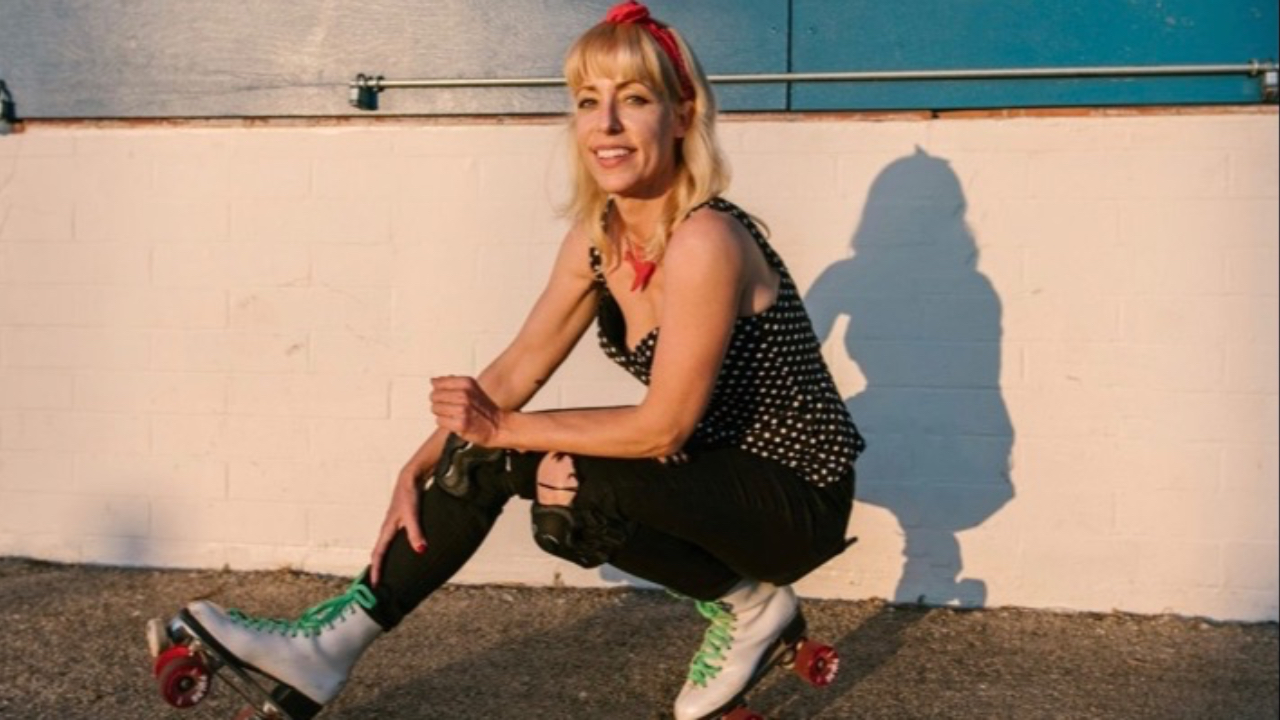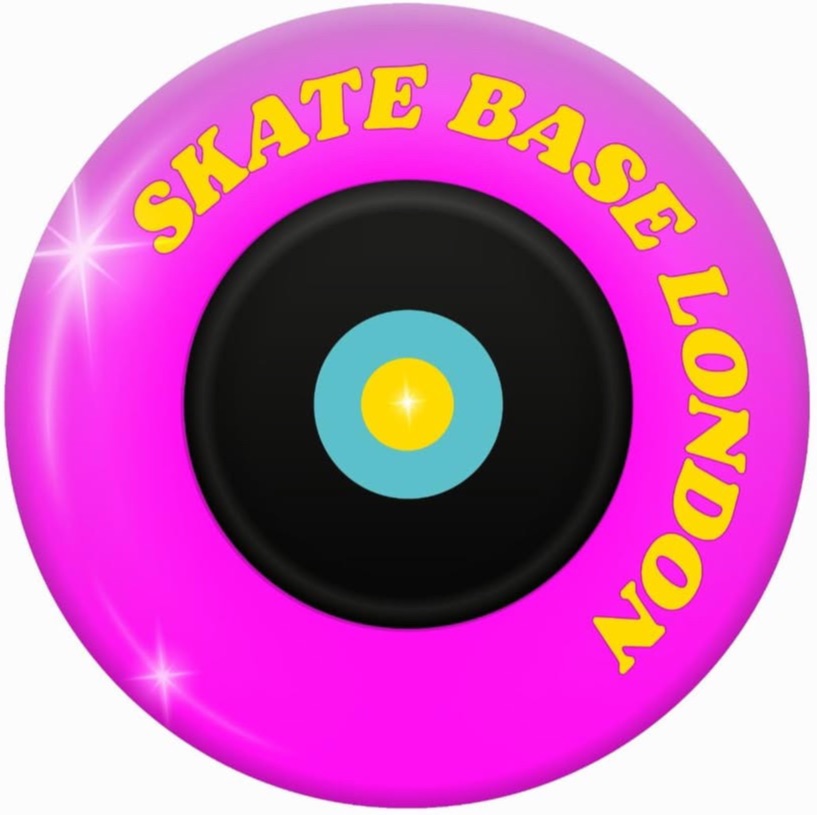
Ok, so I’ve put together a few key beginner roller skating tips so you can get yourself ready for your first roll! Skating regularly can help improve your agility and coordination (at any age, so no excuses please!). It’ll also allow you to express yourself creatively and have fun while building on your social network. Roller skating is a great way to increase your confidence by learning, advancing and sharing your newfound skills with like-minded people.
There are many different styles of roller skating including speed skating, roller hockey, figure skating, jam skating, and park skating. Each style has recognisable features, and the skates used to execute them can vary greatly (and would need a longer article to cover beginner roller tips for each of the styles!). As a beginner, you should start with the very basics, like developing your balance, coordination and control in simple ways. You should focus on learning to stand, start and stop safely. Once you gain knowledge, skill and confidence, you can look more into introducing any specific skating style that you would like to pursue. Let’s get into the first of these beginner roller skating tips. Let’s look at your skate choices.
Beginner Roller Skating Tip #1
What Skates Should I Choose?
Now that you’ve decided to learn to roller skate, you’ll need to decide on which type of skates to go with. The type of roller skates you choose can be influenced by your current skill level, as well as what you plan to use them for. For recreational skaters, standard quad skates are a good choice as they are more stable and easy to manoeuvre. For those looking for speed and agility, inline skates may be a better choice. High-performance skaters may want to consider aggressive skates which are best for skatepark tricks and stunts. If you like the idea of artistic or other dance skating styles, an artistic boot with ankle support would be a good choice, while derby skating would require a pair of derby-style skates (without ankle support). Here in the UK, converted ice hockey boots tend to be the preferred choice for regular street skating. They’re roomy and usually pretty robust!
To begin with, keep it simple and focused on your core skills, like learning to balance well, travel forwards, stop in a variety of different ways (using both feet), cornering and turning (in both directions) as well as developing your glide technique. Once you have developed the basic skills, you can consider developing your skills further by learning to skate backwards, transition (like turning from front to back, and back again) and learning to slow down and stop while travelling backwards.
You’ll need to invest in the right size roller skates to ensure a comfortable fit. Well-fitting skates will support your ability to control your skates and develop your skills. You might want to check the manufacturer’s size chart to ensure you buy the correct size. If you can, aim to try your chosen skates on before you buy them.
When buying your first pair of skates, you should consider the boot type, closure system, and rating (and not just the colour! 😉). The boot should provide enough cushion and support while the closure system should be secure and easily adjustable for a snug fit. As a beginner skater, a plastic plate (which the boot is mounted on) is usually fine. As you become more experienced or get into more dynamic skating styles, you may choose to opt for a more robust metal skate plate and possibly a harder boot. Derby skating usually requires a specialised derby skate.
Here in the UK, those who choose to street skate regularly tend to select ice hockey boot conversions with large soft wheels. These types of skating boots are roomy and often very sturdy.
Beginner Roller Skating Tip #2
How Do I Choose Wheels?
The wheel size you choose will depend on the type of skating you plan to do. Wheels should be appropriate to your level of skating, weight and surface. The bearing type and rating should also be appropriate for your level of skating.
For recreational skating, polyurethane (PU) wheels are a good choice. They provide a softer rolling experience and better grip (both indoors and outside), making them optimal for casual skating and street skating. They come in a variety of sizes to accommodate the skater’s weight and preferred terrain.
Generally speaking, the larger the wheel, the higher the maximum weight capacity, For adults, wheels between 62mm and 65mm are good to start with. Larger wheels will roll faster. Indoor wheels are usually smaller. This will reduce their speed, but make it easier to perform intricate transitions or dance steps.
Roller skate bearings are another consideration (although new skates will come complete with wheels and bearings). Sealed bearings are a good option, particularly when skating outside. This will help to keep them watertight (to reduce the likelihood of them seizing up completely when the inner mechanism becomes wet). Bearings are classified by ABEC classification. Roller skates are typically fitted with ABEC 7 bearings, the higher the ABEC classification, the faster they will spin. As you progress your skills, you may want to replace your bearings with a set of ABECs 9’s, but for now, you should stick with ABECs 7’s!
Beginner Roller Skating Tip #3
What Protective Gear Will I Need?
Falling is part and parcel of roller skating, particularly when your balance and control haven’t yet been established. However, if well prepared, you can significantly reduce your risk of injury.
Wearing protective gear (especially in the earlier phases of your learning journey) will help to keep you safe while reducing your anxiety around falling. You should aim to wear well-fitting knee and elbow pads, wrist guards and a helmet (they will definitely take the pain out of much of your falls)! You can also consider wearing a long-sleeved top and trousers to reduce the chances of cuts and abrasions.
In time, you can learn how to roller skate well and reduce your likelihood of falling. What matters most is that you get back up and keep going. Protective gear will support your ability to do so.
Beginner Roller Skating Tip #4
What Other Accessories Might I Need?
Additionally, you may want to purchase additional accessories such as a skating bag, bum bag, skate strap, a set of basic tools, spare wheels and water bottle.
You can buy skate bags which have been designed to secure your skates well. They’ll usually offer an additional compartment or pocket to store other items away from your skates. Skate bags can be handy when travelling long distances or for long periods with your skates in tow. Bum bags are a popular choice when carrying small items during your skate. They are helpful in that their low weight and small size are less inclined to throw off your balance as you move at speed. It can also be a good idea to use a skate strap. Skate straps are used to carry skates over the shoulder by securing your skates by looping them at each end around the front two wheels on each end. They are particularly useful if you only plan to carry your skates a short distance, or when you don’t want to carry a large bag around with you as you skate. Once you change into your skates, the strap can be easily folded and placed in a pocket.
Tools like a hex tool are essential for maintaining the correct tightness/looseness of your skate axle/wheel bolts. They’re also necessary when changing your wheels in an emergency. You may also require an additional tool to remove or tighten your toe stops. Check whether a screwdriver or Allen key is needed to adjust the toe stops on your skates. It’s useful to keep a spare wheel (that matches the size and material of the set that you have fitted on your skates). You never know when you may need a spare!
You can find many tools and accessories for roller skates in skate shops, sports goods stores or online.
Beginner Roller Skating Tip #4
How Do I Find Roller Skating Teachers?
In the early stages of your roller skating journey, you may want to get yourself booked onto some in-house roller skating lessons to get you started with learning the core skills. If you have a friend who is proficient at roller skating, it may be a good idea to get some guidance from them as you get started.
Skating in areas where other more experienced skaters practise can also be a great way to share skills. You’ll typically find other skaters using open flat surfaces within parks and sometimes unused parking lots. However, if you do not have access to, or know of a local roller skating community, you can consider accessing useful resources and roller skating tuition online. Online lessons can be yet another way to learn the skills needed to get you progressing in your fundamental roller skating skills.
Skate instructors should develop drills and exercises that focus on specific skating techniques and challenge you to develop good physical and mental skills and approaches. Skate teachers are often a fantastic resource to help beginners access other key information to become well-rounded skaters.
Summary
So there you have it, my beginner roller skating tips to help you get started as a recreational roller skater. As may have seen, learning to roller skate can be an invigorating experience filled with fun and challenges alike! With plenty of practise, you can become competent and confident in your roller skating skills within a relatively short period. So, take some time to invest in a good pair of skates and focus on developing a good foundation of core roller skating skills. Aim to get yourself some good tuition and practise alongside other more experienced skaters. Your skill level should improve in no next to no time at all.
Don’t be afraid to ask other skaters for advice as they can provide you with a wealth of information and great beginner roller skating tips. Don’t forget to relax and have fun as you learn the basics!
Do you have any beginner roller skating tips to share? Add them in the comments below!
Kelly
Cranial Osteopath | Wellbeing Coach | Roller Skate Instructor
Please share your thoughts, ideas, and perspectives in the comments below. Thanks for reading!
Click HERE to read other articles.



